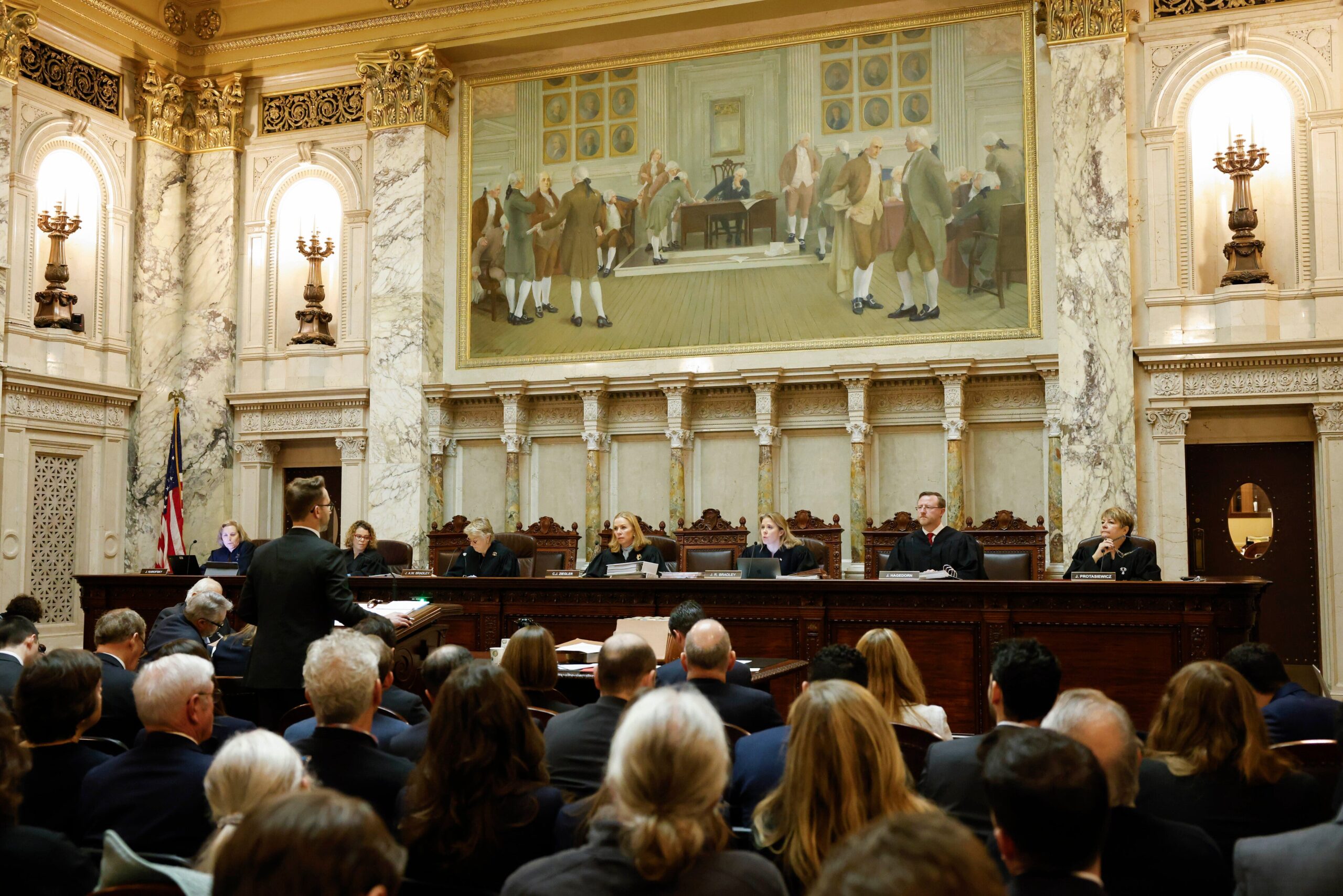From the Article:
Two consultants hired by the Wisconsin Supreme Court’s liberal majority said redistricting plans submitted by the Republican-controlled Legislature do “not deserve further consideration” by justices as part of an ongoing lawsuit over the state’s political maps.
Their report on six map proposals said plans submitted by Gov. Tony Evers, Democrats and academics are “tilted toward the Republicans” but are competitive enough that “the party that wins the most votes will win the most seats.”
The findings, released to the court Thursday night, struck at the heart of an argument long used by Republicans that Wisconsin’s “political geography” favors their party because Democrats are generally clustered in larger cities. Wisconsin’s current legislative maps, first drawn by Republicans in 2011 and redrawn in 2021, have helped the GOP cement lopsided majorities in the Assembly and Senate, even in years when Democratic candidates performed well statewide.
But University of California, Irvine political scientist Bernard Grofman and Carnegie Mellon University political scientist Jonathan Cervas told the court that the maps submitted to the court contradicted that claim.
“To put it simply, in Wisconsin, geography is not destiny,” they wrote.
The report argues map proposals from every party except the Legislature and voters represented by the conservative Wisconsin Institute for Law and Liberty are able to “improve on traditional good government criteria compared to the current map and manage to create plans with modest levels of partisan bias.”
Also, the consultants wrote, the Legislature’s plan and the plan submitted by WILL “are partisan gerrymanders” from a social science perspective.
The other four plans, the report said, are similar on most criteria, and more competitive than the GOP maps. The consultants did not endorse a specific map but told the court they were prepared to improve map proposals if justices choose.
Shortly after the report was released, Evers called it an important step in the process for finding new maps.
“The days of Wisconsinites living under some of the most gerrymandered maps in the country are numbered,” Evers said.
evers maps are a ‘gift’ to republicans. minimal changes to already ridiculously-gerrymandered maps.
“the party that wins the most votes will win the most seats.”
that’s what republicants here and everywhere are afraid of.
That’s good news, but geez, when will we just stop weighing land area over people, and switch to a proportional representation system? While we have so many real problems that need government action to address, we’re just fighting over meta bullshit like district maps. There’s no such thing as a fair map, so this debate will never be settled. State politics is so far off into the weeds, and it’s exhausting.
when will we just stop weighing land area over people, and switch to a proportional representation system?
When we have real representation, rather than majority takes all.
No one can afford to be the “loser” in a winner-takes-all system. Rural folks might not be a majority, but they don’t deserve to get strangled by an inconsiderate stream of city-specific laws, either. Ditto quer folks aren’t a majority, but they don’t deserve to get strangled by CIS normative laws, either.
With real representation, if party takes 20% of the approving votes, it must have 20% of the seats at the table.
A fun side effect of proportional representation could be humanity might get clean skies before the climate activists have to rename their party “the anti-extinction” party to gather the needed votes.
Edit: So we need to do better than first-past-the-poll takes all elections. It’ll take a lot of pressure off of our goofy legacy workarounds.
deleted by creator
The only nice thing I’ve heard anyone say about bicameral legislature is that is slows down bad laws.
https://www.thoughtco.com/why-we-have-house-and-senate-3322313
Essentially, two diverse approving bodies means every law change goes slower. Slower law change gives everyone else a break during the (at least) 50% of the time that the lawmakers are assholes or idiots.
Getting rid of US bicameral legislature will be a weird process, because actively adding a new, better, but still slow-by-design governing body is likely a hard topic to get wide agreement on.
Also there’s currently a lot of old rich white men in the senate who probably want their kids and their grandkids to take over their Senate seats. That’ll likely be a struggle, itself.
United States representation by geography is a legacy back to when the votes had to be carried on horseback. I don’t think anyone is inclined to make any (good faith) argument in favor of keeping geography, other than the usual - that all change is painful and we should take care not to replace our bad system with something worse.
https://www.history.com/news/voting-elections-ballots-electronic
I’m confused by this comment, because the way that you’ve defined real representation is the same as proportional representation.
Understandable. I’m using “real” as an idealized term, not as “current reality”.
“real” as in, people are actually represented.
“proportional” as in, as huge step toward “real” compared to “current reality”.





